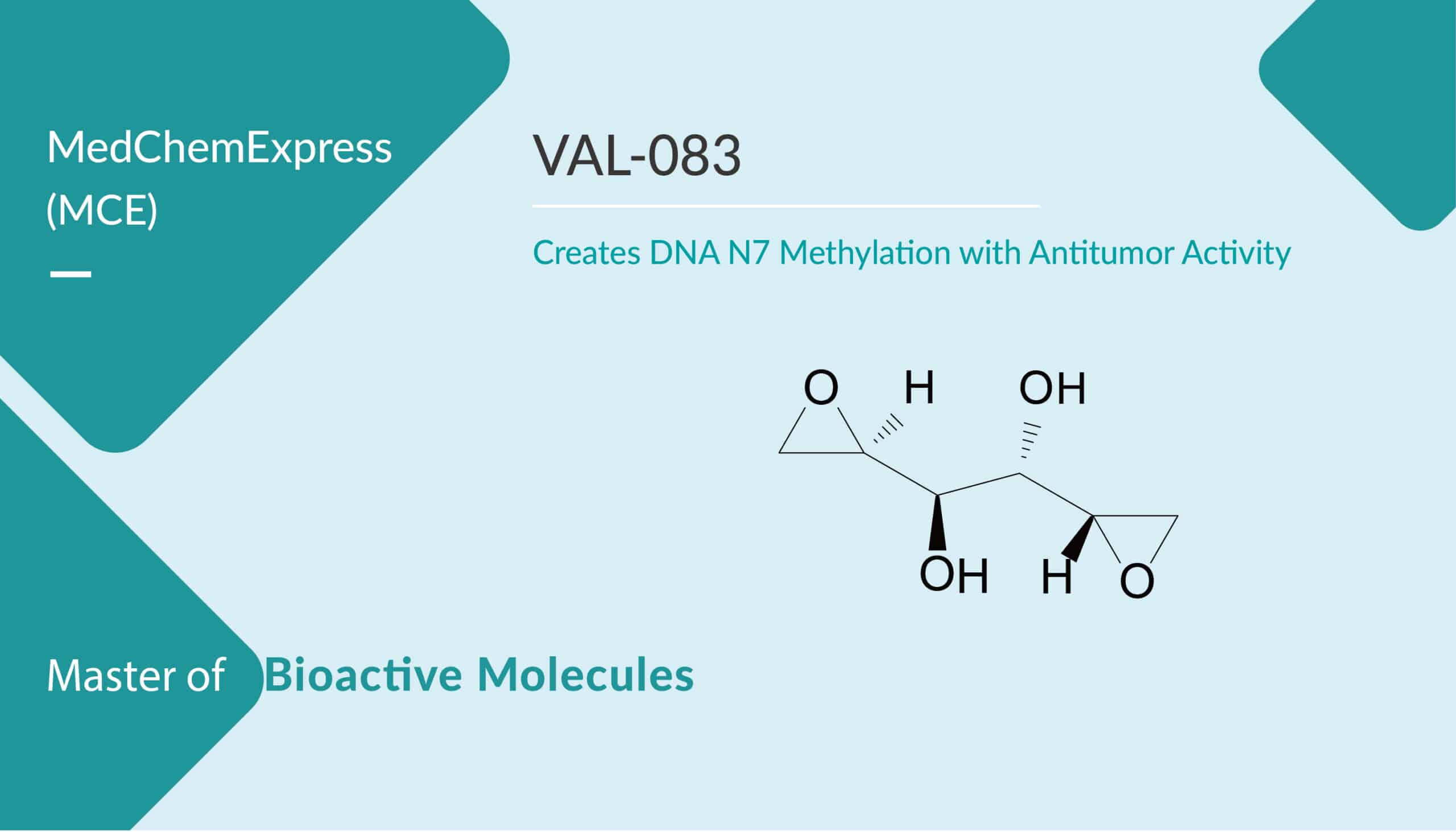Glioblastoma (GBM) is one of the most difficult tumors. Many new agents fail to cross the blood-brain barrier (BBB) and it has intrinsic drug resistance.
VAL-083 is an alkylating agent that creates N7 methylation on DNA. Additionally, VAL-083 suppresses U251 and SF188 cell growth and induces apoptosis after 72 h. This compound at 5 μM inhibits the growth of SF188 by 95%. At the same time, VAL-083 inhibits T98G cells’ growth in a dose-dependent manner (IC50 <5 μM). However, VAL-083 inhibits the proliferation of HUVEC and U251 cells at doses of more than 12.5 μg/mL. VAL-083 (3.125, 6.25, 12.5 μg/mL) also suppresses the migration and invasion. And it reduces MMP2, VEGF, VEGFR2, and FGF2 expression in HUVEC and U251 cells.

In the glioma cell lines, VAL-083 (1, 2, 5 μM) dose-dependently induces cell cycle arrest at the G2/M phase. Furthermore, VAL-083 activates two parallel signaling cascades, the p53-p21, and the CDC25C-CDK1 cascade. In addition, VAL-083 significantly enhances the radiosensitivity of LN229 cells.
In a zebrafish model, VAL-083 dose-dependently inhibits angiogenesis. It considerably reduces VEGF, VEGFR2, and FGF2 expression at 25 μg/mL. And it furtherly causes a reduction in FGFR2 expression at 50 μg/mL.
In a tumor mice model, after VAL-083 intravenous injection at dosage 5 mg/kg; After 6 weeks, It significantly blocks the growth of LN229 cells in mice with the relative tumor growth rate (T/C) of 22.38%. Besides, it exhibits a tumor growth inhibitory rate (TGI) of 83.58%. Moreover, VAL-083 dramatically activates the CDC25C-CDK1 cascade in the xenografted tumor model.
In conclusion, VAL-083 is a potent alkylating agent. And this compound exhibits anti-tumor activity in vitro and in vivo. It has the potential for cancer research.
Reference:
[1]. Kaiji Hu, et al. Cancer Research. 2012 Mar 31-Apr 4.
[2]. Jiang X, et al.Biomed Pharmacother. 2017 Jul;91:1065-1074.